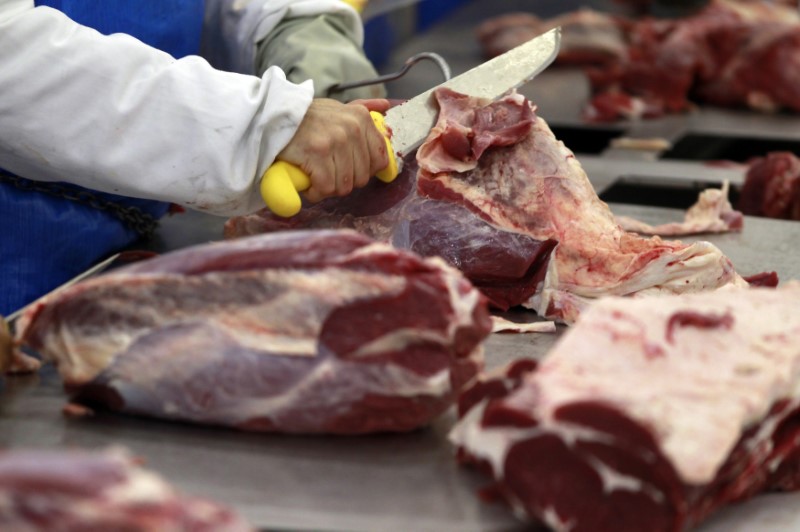(Bloomberg) -- Meat could be a target for higher taxes given criticism of the industry’s role in climate change, deforestation and animal cruelty, according to a report by Fitch Solutions Macro Research.
The idea is still its infancy and faces a lot of opposition from farming groups, but it’s emerging as a trend in Western Europe, said the research group. If taxes gain traction, it could encourage more people to switch to poultry or plant-based protein and help drive the popularity of meat substitutes.
“The global rise of sugar taxes makes it easy to envisage a similar wave of regulatory measures targeting the meat industry," Fitch Solutions said. However, "it is highly unlikely that a tax would be implemented anytime soon in the United States or Brazil."
In Germany, some politicians have proposed raising the sales tax on meat products to fund better livestock living conditions. A poll for the Funke media group showed a majority of Germans, or 56.4%, backed the measure, with more than a third calling it “very positive” and some 82% of voters for the environmentalist Greens in favor. Similar proposals have been introduced in Denmark and Sweden since 2016, Fitch Solutions said.
Goldsmiths, University of London, announced on Monday that it’ll stop selling beef on campus as part of a push to combat climate change. The decision was met with opposition from the U.K.’s National Farmers Union, which said it was “overly simplistic’’ to single out one food product as a response to global warming.
Taxes on meat and sugar have long been controversial. Shortly after coming into office in July, Prime Minister Boris Johnson suggested he would abolish the U.K.’s tax on sugary drinks and said there there are better ways to address obesity.
Fitch said prices of pork and beef in Western Europe are relatively low, so any added tax would have to cause a big change in retail prices to change customer buying habits.
The loudest argument against meat at the moment is not based on health but climate change. In a report this month, the United Nations said agriculture, forestry and other land use contributes about a quarter of greenhouse emissions.
The meat industry has also been under fire after studies linked eating too much red and processed meat to illnesses ranging from heart disease to cancer. Fitch Solutions linked these concerns to the health issues that prompted the sugar tax saying, “A meat tax could therefore emerge as a policy sibling to the sugar tax, supported on the basis that meat does play a role in a balanced diet but over-consumption is a public health issue.’’
